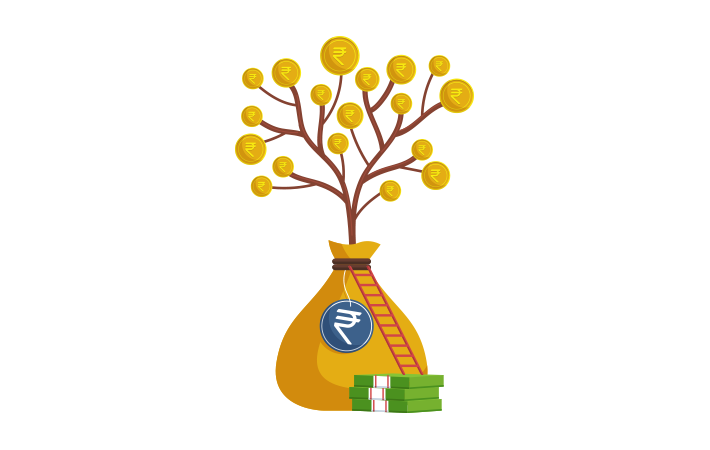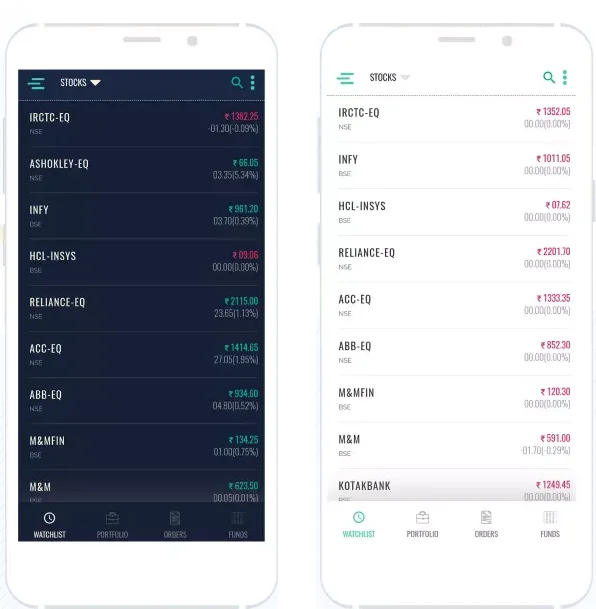The Secret to Wealth Creation

The secret to Wealth Creation is not really a secret. It is more of common sense actually, but the gravity of the word can make it uncommon.
If one looks at the dictionary meaning of “Wealth” it means abundance. So simply put in the context of personal finance Wealth Creation is creating an abundance of money.
It is also said that money begets (creates) money which means that your money should be earning more money. Or compounding itself. More of this later.
As such, the secret of Wealth Creation is making your money work harder and faster for you and in turn creating wealth.
So how does the journey of wealth creation begin? Wealth cannot be created by just earning more money. It is important to save and invest that money so that it has time to grow and create wealth over a period of time.
Earn-Save-Invest-Create Wealth
While we understand earning which can be a salary from employment or income from a business the bus most of us miss is the Savings and Investment part.
So, let’s spend some time understanding these aspects of wealth creation.
Is Savings a Sacrifice?
Yes, some of us may think that saving now is a sacrifice because saving can delay or mean reducing our consumption today. For example, buying that new mobile phone. But if we think of it, what if saving now actually helps us have a better future.
First, let’s understand what exactly we mean by saving.
Normally, most of us follow this equation: Income – Expenses = Savings. This means we spend first and then save or invest what we have left.
But ideally, the equation should be as follows: Income – Savings = Expenses. What this means is that we control our expenses and save or invest more.
Yes, savings does mean some sacrifice…whether it is not buying a new phone this month or a new dress or just letting go of the urge to eat out more than once a week.
But if you look at it, this is not an absolute sacrifice because you are saving and investing for yourself and the future of your family. In more complex terms it is called ‘delayed gratification’ which is sacrificing today to enjoy more tomorrow.
What is Investing?
Many of us confuse investing with money saved which is perhaps lying idle in a bank account. It is not. Investing is putting your money in financial instruments that can grow over a period of time and most importantly beat inflation.
It is creating a basket of assets like shares, gold, real estate, fixed income, and cash among others based on your risk profile and goals. An appreciation of the value of these investments over a period of time is what will help create wealth.
While investing it is important to keep three aspects in mind
Amount Invested
Period of Investment
Rate of Return on your investment.
Here is an illustration
| Investment Value after 1 year | |||
| Investment Per Month | Rate of Return 8% | Rate of Return 10% | Rate of Return 12% |
| Rs 500 | Rs 6225 | Rs 6283 | Rs 6341 |
| Ra 1000 | Rs 12450 | Rs 12565 | Rs 12683 |
| Rs 2000 | Rs 24900 | Rs 25131 | Rs 25365 |
| Rs 3000 | Rs 37350 | Rs 37697 | Rs 38047 |
| Rs 5000 | Rs 62250 | Rs 62828 | Rs 63413 |
A common excuse for not investing is that I don’t have the money. As little as Rs 500 is a good amount to start investing. The important thing is to just start, and then make it a habit.
The Magic of Wealth Creation - Power of compounding
Power of Compounding is also called the “eighth wonder of the world,”. Albert Einstein said, “he who understands it, earns it; he who doesn’t, pays for it.”
It’s really very simple.
With compound interest, you’re not just earning interest on your principal balance. Even your interest earns interest. Compound interest is when you add the earned interest back into your principal balance, which then earns you even more interest, compounding your returns.
Let’s say you have Rs 1,000 in a savings account that earns 5% in annual interest. In year one, you’d earn Rs 50, giving you a new balance of Rs 1,050. In the second year, you would earn 5% on the larger balance of Rs 1,050, which is Rs 52.50 —giving you a new balance of Rs 1,102.50 at the end of year two.
In fact, the earlier you start, the smaller amount will be required to invest and build sufficient corpus to reach a specific goal like buying a house or your child’s education.
A look at how investing over a long period of time can help build wealth
The story of two friends.
Suresh and Ramesh – are both 25 years old.
Suresh starts investing early at age 25, Rs 3,000 per month, till the age 60. Ramesh did not start investing until age 35 and then starts investing a higher amount of Rs 5,000 per month to cover up the lost time.
At the age of 60, Suresh will accumulate Rs.1.65 crore at 12% p.a. return while Ramesh would be able to accumulate only Rs. 85.11 lakh, though Ramesh put in a higher amount of Rs.15 lakh (5,000 x 12 months x 25 years) than Suresh who invested a total amount of Rs. 12.60 lakh (3,000 x 12 months x 35 years).
| Details | Suresh | Ramesh |
| Current Age | 25 years | 25 years |
| Investment start date | 25 years | 35 years |
| Retirement age | 60 years | 60 years |
| Investment Amount | Rs 3000 p.m for 35 years (from 25 years to 60 years) | Rs 5000 p.m for25 years (from 35 years to 60 years) |
| Rate of Return | 12% p.a | 12% p.a |
| Accumulated corpus at retirement | Rs 1.65 crore | Rs 85.11 lakhs |
| Total Amount Invested | Rs 3000 per month X 12 months X 35 years = Rs 12.60 lakhs | Rs 5000 per month X 12 months X 25 years = Rs 15 lakhs |
As you can see from the table above, the difference in the accumulated corpus is significant – of around Rs 80 lakh! As time is on your side, start investing NOW. The sooner you start, the greater your chances of meeting all your financial goals and creating wealth.
Conclusion
- Saving is not a sacrifice but an essential component of wealth creating
- Invest based on your risk profile and investment horizon.
- Patience and Perseverance are key elements in wealth creation
- Let the power of compounding work its magic.
Frequently Asked Questions (FAQs)
What is wealth and wealth creation?
Strictly speaking wealth means abundance. Simply put in the context of personal finance Wealth Creation is creating an abundance of money. The secret of Wealth Creation is making your money work harder and faster for you and in turn creating wealth.
This is possible through a process called compounding.
What is Investing?
Investing is putting your money in financial instruments that can grow over a period of time and most importantly beat inflation. It is creating a basket of assets like shares, gold, real estate, fixed income, and cash among others based on your risk profile and goals. An appreciation of the value of these investments over a period of time is what will help create wealth.
What is the compounding?
With compound interest, you’re not just earning interest on your principal balance, but even your interest can earn interest. Compound interest is when you add the earned interest back into your principal balance, which then earns you even more interest, compounding your returns.


How Would You Rate This Chapter?
Next
Comments (0)